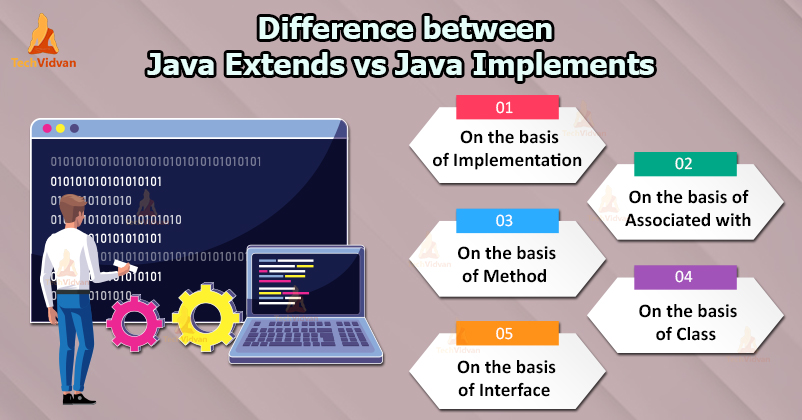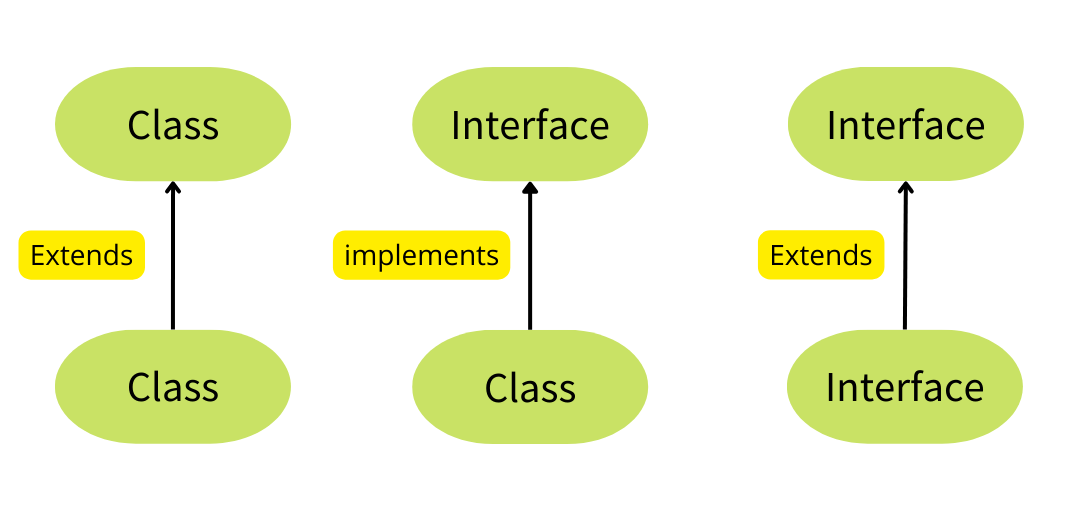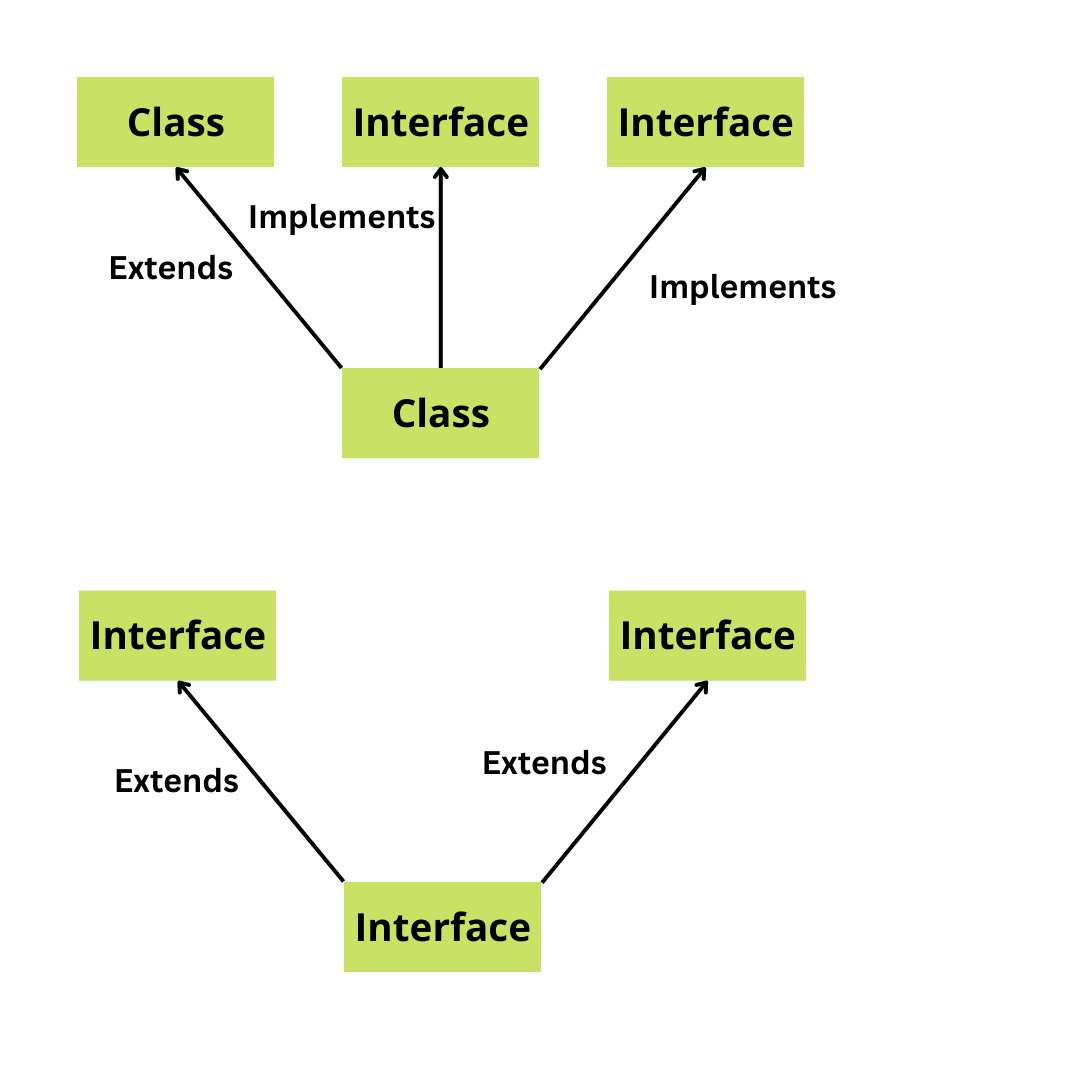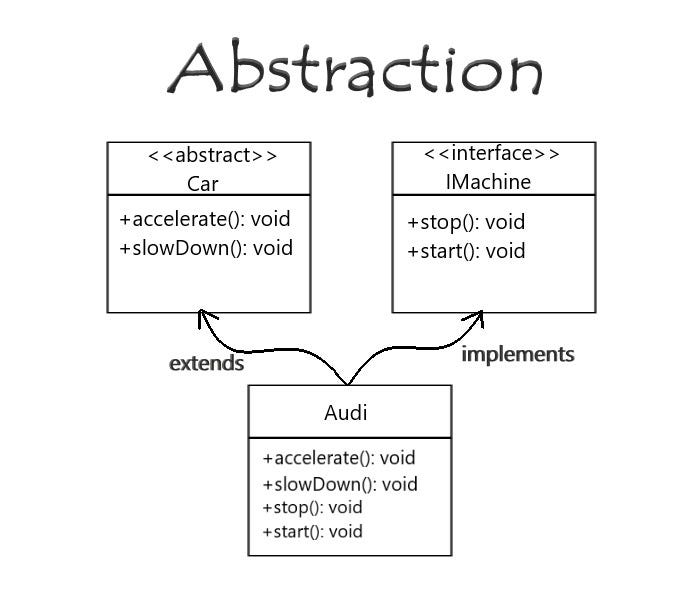Antwort What is the difference between class extends and class implements? Weitere Antworten – What is the difference between extends and implements
When a subclass extends a class, it allows the subclass to inherit (reuse) and override code defined in the supertype. When a class implements an interface, it allows an object created from the class to be used in any context that expects a value of the interface.Although both the keywords align with the concept of inheritance, the implements keyword is primarily associated with abstraction and used to define a contract, and extends is used to extend a class's existing functionality.Extends is used for class inheritance. It allows a class to inherit properties and methods from another class. Implements is used for interface implementation. It enables a class to provide specific implementations for the methods defined in an interface.
Can a class extend and implement at the same time : Note: A class can extend a class and can implement any number of interfaces simultaneously.
Should I extend or implement
Use “extends” when you want to create a new class that inherits properties and methods from an existing class and can add new properties and methods or override existing ones. Use “implements” when you want to define a contract that a class must follow, such as implementing a set of method signatures.
What is the use of extends in class : The extends keyword extends a class (indicates that a class is inherited from another class). In Java, it is possible to inherit attributes and methods from one class to another. We group the "inheritance concept" into two categories: subclass (child) – the class that inherits from another class.
The extends keyword is used to derive a class from another class. This is called inheritance. A derived class has all of the public and protected properties of the class that it is derived from.
Yes you can do that.
What is implements in TypeScript
It's important to understand that an implements clause is only a check that the class can be treated as the interface type. It doesn't change the type of the class or its methods at all. A common source of error is to assume that an implements clause will change the class type – it doesn't!In Java, it is not possible to directly extend multiple classes. However, it is possible to achieve multiple inheritance-like behaviour by implementing interfaces that extend multiple classes.No, Java does not support multiple inheritance, which means that a class cannot directly extend more than one class. However, a class can implement multiple interfaces, which is a form of multiple inheritance through interface inheritance.
Use “extends” when you want to create a new class that inherits properties and methods from an existing class and can add new properties and methods or override existing ones. Use “implements” when you want to define a contract that a class must follow, such as implementing a set of method signatures.
Why do we use implements : The implements keyword is used to implement an interface . The interface keyword is used to declare a special type of class that only contains abstract methods. To access the interface methods, the interface must be "implemented" (kinda like inherited) by another class with the implements keyword (instead of extends ).
What is the difference between implements and extends in Java : Extends : This is used to get attributes of a parent class into child class and may contain already defined methods that can be overridden in the child class. Implements : This is used to implement an interface (parent class with functions signatures only but not their definitions) by defining it in the child class.
Why do we use implements in Java
The implements keyword is used to implement an interface . The interface keyword is used to declare a special type of class that only contains abstract methods. To access the interface methods, the interface must be "implemented" (kinda like inherited) by another class with the implements keyword (instead of extends ).
Basically: extends will get all properties and methods of the parent class. implements will obligate us to implement all of the properties and methods defined in the interface.extends keyword is used to inherit a class or interface, while implements keyword is used to implement the interfaces. A class can extend only one class but can implement any number of interfaces. A subclass that extends a superclass may override some of the methods from superclass.
Can a class extend a class and implement two interfaces : Defining an Interface
An interface can extend other interfaces, just as a class subclass or extend another class. However, whereas a class can extend only one other class, an interface can extend any number of interfaces.





